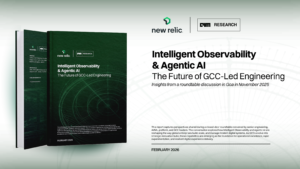Pegasystems Inc., a low-code workflow automation provider, today announced substantial advancements to its Pega GenAI Blueprint application design-as-a-service tool, as well as the introduction of an innovative training technique based on generative AI. The news were made during the PegaWorld iNspire conference in Las Vegas.
Pega GenAI Blueprint Enhancements
Pega GenAI Blueprint, which was first released in February, has already seen quick adoption, with over 30,000 blueprints developed across over 500 organisations since its release in April. This tool applies design thinking methods, allowing users to translate ideas into interactive “blueprints” that serve as the foundation for applications.
The software uses generative AI to help users create application designs by describing business concepts. It integrates best practices that Pegasystems has developed over more than 40 years. “It’s a combination of our best practices and what we’ve seen from clients,” said Don Schuerman, Pegasystems’ Chief Technology Officer. “It delivers a best-practice first draft that recommends what workflows need to be included, what they look like, and what data is needed.”
Once a blueprint design has been completed, it may be loaded into Pega’s low-code App Studio and converted into a working application. The new upgrades will enable organisations to incorporate their current assets, information, and knowledge. Support for Business Process Modelling Notation (BPMN) models is expected within a month, with older inputs such as process documentation, application screens, and entire blueprint designs being available via application programming interfaces (APIs) in the third quarter.
A new user interface, unveiled this week at the conference, aims to speed and simplify the design process. It now creates editable data model fields for each case type, allowing users to collaborate and amend their designs. Generative AI may also generate new asset ideas with a single click, such as case kinds, fields, or personalities. Pega partners may upload and store proprietary process templates to the company’s best practices repository.
Generative AI in Training: Pega GenAI Socrates
Pegasystems is transforming its training strategy with Pega GenAI Socrates, a generative AI-powered instructor. This unique technology generates individualised and interactive courses based on each student’s industry, skill level, and learning requirements. According to statistics, 90% of material from traditional lectures or e-learning is forgotten after a month. Pega’s revolutionary approach uses the Socratic teaching style to inspire critical thinking via discussion and inquiry.
“We’re moving toward giving each learner a personalized teaching experience,” said Kate Lepore, Senior Director of Learning Strategy and Solutions. Traditional courseware’s rigid lesson plans and multiple-choice tests don’t align well with the Socratic method, but generative AI changes that dynamic. Pega GenAI Socrates engages students in two-way text or simulated voice conversations in any of 10 languages, interspersing discussions with open-ended questions on each learning objective.
The tutor tailors lectures to suit students’ weaknesses and encourages them to analyse real-life events, which improves information retention. “AI is best used to help a person design a process rather than to create the process itself,” Schuerman explained, emphasising AI’s supportive function in both design and learning settings.
Pega GenAI Socrates is now accessible for system architecture training on Pega Academy, with more courses to be added in the coming months.
By integrating generative AI across both its product design and training platforms, Pegasystems is poised to significantly enhance user experience and efficiency, driving innovation and better outcomes for its clients.





